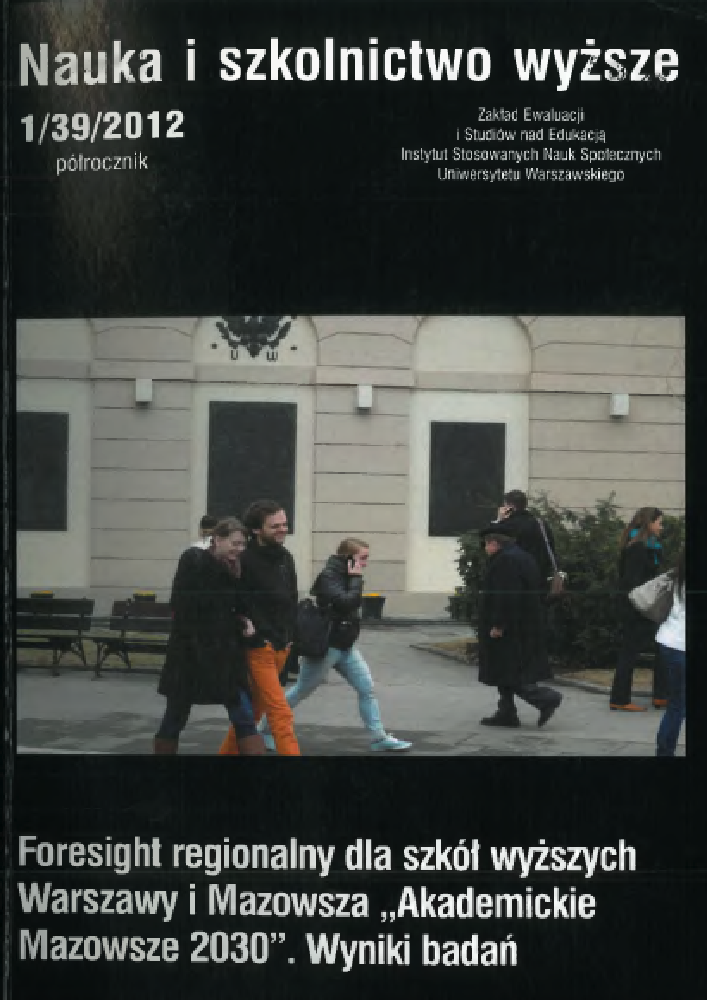Abstract
The article presents the basic problems concerning higher education in Poland. By drawing the dynamics of changes of main assumptions of studying at public and non-public colleges in the last past years, the author is trying to outline the future of higher education institutions and of higher education from a perspective of changes of approach of students and academic teachers, ageing of the society and demographic changes, as well as changes of forms of education, with particular reference to of distance training.
References
Fukuyama F. 1996 Koniec historii, tłum. T. Bieroń, M. Wichrowski, Zysk i S-ka, Poznań.
Goldthorpe J.H. 1971 Theories oflndustrial Society: reflections on the recrudescence of historicism and the future of futurology, „European Journal of Sociology”, 1.12, nr 2, s. 263-288.
Mead M. 2005 The World Ahead: An Anthropologist Anticipates the Futurę, red. R.B. Textor, Berghahn Books, New York.
Moore R. 2004 Education and Society: Issues and Explanations in the Sociology of Education, Polity Press, Cambridge.
Newman F., Couturier L, Scurry J. 2004 The Future of Higher Education: Rhetoric, Reality, and the Risks ofthe Market, Jossey-Bass, San Francisco.
Privateer RM. 1999 Academic Technology and the Futurę of Higher Education: Strategie paths Taken and Not Taken, „The Journal of Higher Education”, t. 70, nr 1, s. 60-79.
Rozporządzenie... 2007 Rozporządzenie Ministra Nauki i Szkolnictwa Wyższego z dnia 25 września 2007 roku w sprawie warunków, jakie muszą być spełnione, aby zajęcia dydaktyczne na studiach mogły być prowadzone z wykorzystaniem metod i technik kształcenia na odległość, „Dziennik Ustaw” Nr 188, poz. 1347, z późn. zm.
Staley D.J., Malenfant K.J. 2010 Futures thinking for academic librarians: Higher education in 2025, „Information Services & Use”,t. 30, nr 1-2, s. 57-90 .
Wójcicka M. 2010 Uniwersytet-stabilność i zmiana, Centrum Badań Polityki Naukowej i Szkolnictwa Wyższego Uniwersytetu Warszawskiego, Warszawa.
